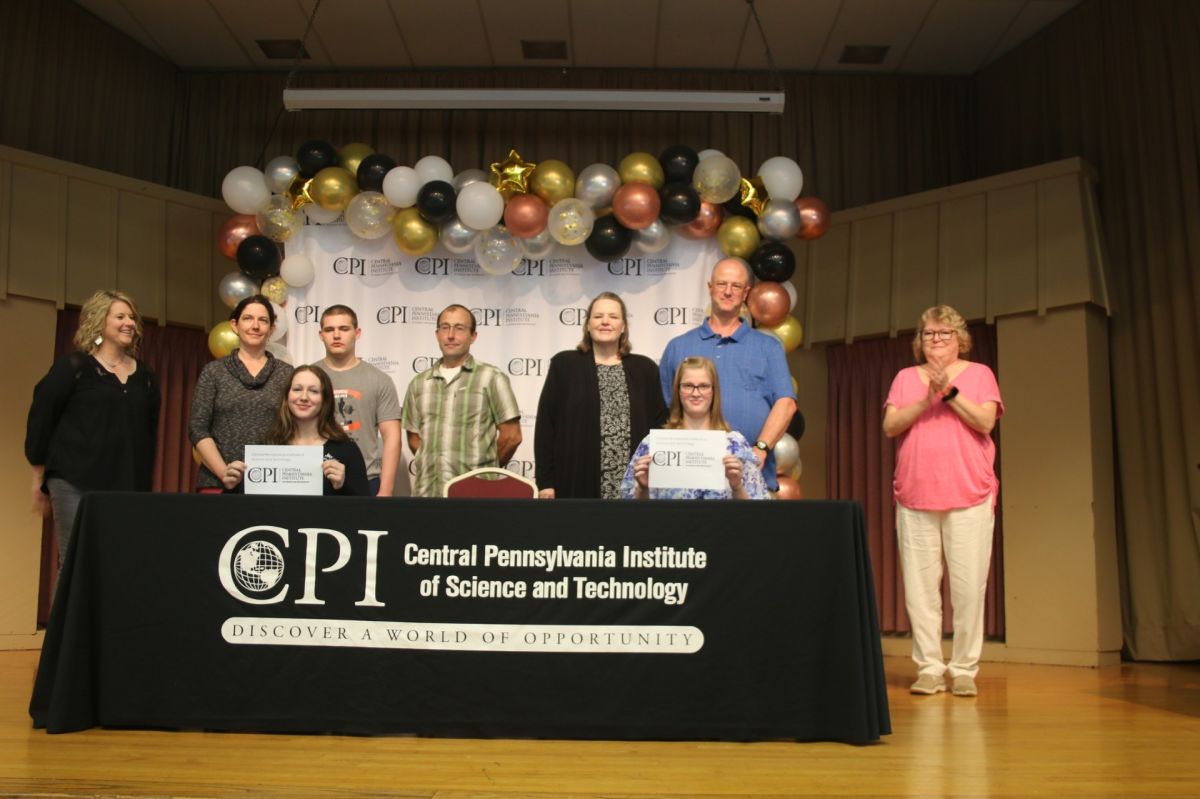by Holly Riddle
 Photo: CPI Facebook
Photo: CPI Facebook
According to an April article from McKinsey & Company, the skilled labor shortage that American industry has been facing for a while doesn’t seem to be going anywhere, anytime soon, due to a variety of factors. There’s the aging workforce and lack of young replacements. Meanwhile, changes in industry, such as the clean energy transition, are spurring increasing demand for talent.
In Happy Valley, Central Pennsylvania Institute of Science and Technology (CPI), is filling these gaps, inspiring the Gen Z workforce to meet increasing demand and replace an aging workforce. The school is also working to engage parents and the community in making career paths more appealing for students.
For CPI, it’s important to show young talent their options sooner rather than later. The majority of its students are high school students. CPI instructs nearly 500 high school students and just over 100 post-high school students, across its 16 program areas — and for those high school students, the CPI tuition, which is quite affordable, is covered by their high schools, making CPI an even more attractive option.
“We want students to come in early and learn a career or a trade, so that if they choose not to continue their post-secondary education, they’re able to enter the workforce at a good, high-paying, life-sustaining wage,” said CPI President MaryAnn Volders. “College isn’t for everyone. Post-secondary institutions aren’t for everyone… We can have 18 and 19-year-olds coming out of CPI and going to work for $75,000–$100,000 based on the skills they learned [here].”
(McKinsey noted that some trades have witnessed wage increases of more than 20% since 2020, due to labor shortages and increasing competition for talent.)
CPI is also remaining current with students’ and industry’s needs through initiatives like its recent joining of the Smart Automation Certification Alliance (SACA), which allows students to earn SACA Industry 4.0 certifications, prepping them to work in Industry 4.0 and IIoT sectors. CPI likewise partners with more than two dozen other educational institutions, so that students can transfer their credits elsewhere and pursue further education, if desired.
Overcoming obstacles to choosing technical education is a community effort
While CPI is excelling at equipping its students for the Happy Valley workforce, it still faces some challenges.
Volders said, “I think a lot of parents are afraid that if they send their student to a career and tech school, they’re not going to have an academic background, that they need to go to college. That’s not true… We need more parents to send students here to learn a trade. Maybe they use it while they’re in college, maybe they make it a career path, maybe it’s just a skill they learn…But I really think it boils down to people being afraid to say, ‘I’m a career and tech student.’ It doesn’t have the same appeal as saying ‘I’m an academic student and am going to apply to Penn State.’”
This is something that the McKinsey article touched on as well. A survey found that, despite increased enrollment in career and trade schools, 74% of students reported a perceived stigma associated with choosing vocational schools over traditional four-year universities, and nearly 80% of students reported that their parents preferred they pursue a traditional college education, with only 5% of parents pushing their children to a vocational school.
“Vocational schools in the 80s and 90s had a different atmosphere. Now, we’re much more academic and much more student-centered, and much more technical in nature…
We’ve upped our game a lot in the last 20 to 25 years, in career and technical education. However, I do think a lot of parents remember the old vo tech,” added Volders. “We’re still fighting that stigma.”
There’s also the fact that many members of the Gen Z workforce highly value flexibility, but it’s difficult to provide a large degree of flexibility in a workplace that requires one to be physically present in a dedicated workspace, such as in a dentist’s office or mechanic’s garage.
That, though, is not an insurmountable challenge. Volders posed, “Can we give people [in skilled trades] more flexibility in their time? Can we give them more personal days? Can we give them more vacation days? Can we help them put family first and not necessarily put the job first when not necessary? Those are the things we have to look at.”
All of the above, Volders noted, these challenges can be solved with a community effort that combines schools, parents, employers and students — and Happy Valley might just be the community to pull it off.
She said,
“We are so fortunate to be a career and technical education school in Centre County.
We have three amazing school districts — Penns Valley, Bald Eagle and Bellefonte — who absolutely support careers in technical education. They send as many students to us as they can. They promote it within their schools.”
How have you seen the skilled labor shortage affect Happy Valley and do you ideas for how to be go about attracting talent to skilled trades? Let us know: greg@affinityconnection.com.

